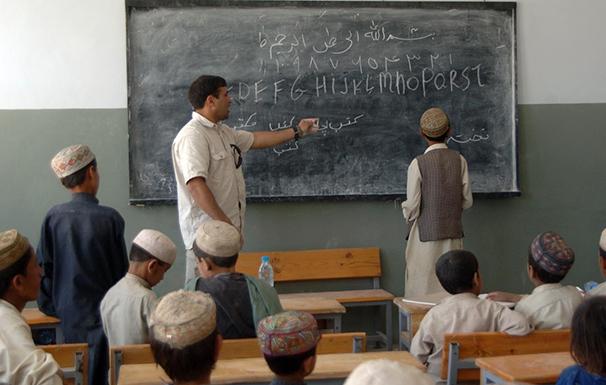
Three NYU professors received a grant to study the education system in Afghanistan. International education professor Dana Burde, statistics professor Joel Middleton and politics professor Cyrus Samii will examine the transition of community-based schools in Afghanistan from nongovernmental organization control to governmental control.
The study is backed by a $258,000 grant from the Danish International Development agency and a four-year U.S. Agency for International Development grant of $2.8 million.
According to a March 26 press release, the study aims to asses two primary areas. The first of the areas includes an evaluation of intervention programs to ensure access to education for girls. The second area is an assessment of teacher hiring models and the handover process in its ability to support sustainable access to schooling.
In a previous study Burde and Leigh Linden, a professor of the University of Texas at Austin, conducted in Ghor Province, Afghanistan, Burde said community-based schools provide an extremely large benefit for Afghani girls.
“We showed that community-based schools made the difference between girls either gaining access to an education, or never having that opportunity,” Burde said. “We showed that community-based schools virtually eliminate gender disparity in educational access in remote Afghan villages.”
Researchers will look at 220 villages that had community-based schools but now are under control of the government and examine various indicators of quality in order to determine how these schools should move forward and how foreign aid may be able to help.
CAS sophomore and international relations major Isabella Kopij is skeptical about the study’s usefulness.
She predicts that once Western forces withdraw from Afghanistan it is only a matter of time before the Taliban or another extremist group seizes control of the country and many of its schools, especially in rural regions.
“It does not matter if American organizations espouse ‘equality for women’ and ‘better education’ in Afghanistan, because whatever extremist movement will take over Afghanistan (since it’s such a damaged and defenseless nation) will turn such concepts against the Afghan people, calling out these ideas to be Western propaganda,” Kopij said.
But Burde said she is optimistic that the study will help smooth the transition in schools and advise the government about how it should govern them.
She said she hopes the study will increase access and achievement in schools among both boys and girls, as well as helping the schools to be sustainable in the long run.
“We will be thrilled if our research goes some small way toward helping the government of Afghanistan accomplish its goals to increase universal access to quality education,” Burde said.
A version of this article appeared in the Thursday, April 3 print edition. Claire Scimeca is a contributing writer. Email her at [email protected].






















































































































































